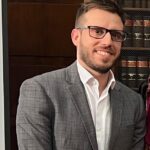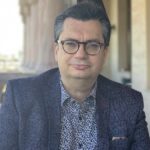20 June to 25 July
Online Seminar on Freedom of Expression in the Digital Realm: New Actors and Novel Challenges – 2025
The global regulatory landscape of the Internet has undergone a significant power shift. Initially, governments were perceived as threats to innovation, while tech companies were celebrated as defenders of a free and open Internet. However, as digital platforms grew in power and influence, the focus of policy discussions shifted from limiting government control to addressing corporate dominance. This change has often sidelined users and public interest advocates, leaving them to navigate the power imbalance alone in their pursuit of digital justice.
Social media platforms, particularly Meta (formerly Facebook), have become central spaces for online expression worldwide. Yet, rising controversies over content moderation have prompted increasing demands from users and civil society for transparency and accountability. In response, governments have intensified their involvement in regulating online speech.
As a response to this pressure, Meta created the Oversight Board (OSB), often referred to as its “Supreme Court,”; a key milestone in this context. Tasked with reviewing content moderation decisions and issuing policy recommendations, the OSB has sparked mixed reactions. While some view it as a legitimacy-seeking exercise by Meta, others regard it as a promising mechanism for promoting free expression and engaging with stakeholders.
Meanwhile, the EU Digital Services Act (DSA) introduced a novel regulatory approach through Article 21, which establishes a mechanism for out-of-court dispute settlement. These ODS (Out-of-Court Dispute Settlement) bodies offer users and platforms a cost-effective alternative to litigation in resolving content moderation disputes. Certified by Member States, ODS bodies must meet high standards of independence, impartiality, expertise, and transparency. While their decisions are not legally binding, platforms are required to engage with and assess the outcomes in good faith, reinforcing the DSA’s core commitment to human rights and fair redress.
Simultaneously, the emergence of generative AI technologies has transformed digital content creation. These tools can autonomously generate text, images, and media at scale, presenting both opportunities and risks. Concerns about false information, deepfakes, and biased narratives have intensified, especially as legal frameworks struggle to keep pace. The question of who is liable for AI-generated content remains unsettled, raising urgent challenges for ensuring accountability while safeguarding freedom of expression.
Against this backdrop, Columbia Global Freedom of Expression is offering this seminar to explore these emerging developments and engage participants in meaningful analysis and practice. The seminar will aim to:
- Examine the powers, limitations, and legal status of the Meta Oversight Board, and assess its role in promoting human rights standards in content moderation.
- Analyse the function and regulatory framework of ODS bodies, evaluate their distinctiveness from internal platform reviews, explore operational challenges, and highlight their potential contributions to digital justice.
- Explore the impact of generative AI on freedom of expression, address concerns around liability, and consider the ethical and regulatory responses required to address emerging harms.
- Teach participants how to write a case analysis on court decisions related to freedom of expression.
- Introduce opportunities for engagement with Columbia Global Freedom of Expression and Legal Clinics at Arab universities.
The seminar will feature expert presentations, interactive in-session activities, and take-home assignments, fostering an engaging and practical learning environment that empowers participants to critically engage with current issues in digital rights and governance.
This seminar is by invitation only.
Agenda
Friday, 20 June 2025
| 5:00- 7:00pm
Cairo time |
Introduction to Global Freedom of Expression Database: How to search and navigate the database and how to evaluate cases
Speakers: Hawley Johnson, Columbia GFoE; Ahmed Khalifa, Ain Shams University; Lautaro Furfaro, Columbia GFoE; Caroline James, Columbia GFoE; Juan Manuel Ospina, Columbia GFoE; Ibrahim Sabra, University of Vienna. |
Friday, 27 June 2025
| 5:00- 7:30pm
Cairo time |
Columbia’s Special Collection of Papers: Insights from Global Case Law an Online Violence, Free Speech, and Moderation Challenges
Speakers: Estefanía Mullally, Columbia GFoE; Alejandra Negrete Morayta, Columbia GFoE. |
Friday, 4 July 2025
| 5:00-7:30pm
Cairo time |
Exploring Meta’s Oversight Board and Its Decisions from a Human Rights Jurisprudence Lens
Speaker: Joan Barata, Senior Legal Fellow, Future Free Speech Project. |
Friday, 11 July 2025
| 5:00-7:30pm
Cairo time |
The role, challenges, and potential of Out-of-Court Dispute Settlement (ODS) bodies under Article 21 of the EU’s Digital Services Act (DSA) Speaker: Niklas Eder, Co-founder, User Rights Organisation |
Friday, 18 July 2025
| 5:00-7:30pm
Cairo time |
Generative AI’s Impact on Free Speech and the Liability Debate on AI-Generated Content Speaker: Jordi Calvet-Bademunt, Research Fellow, Future of Free Speech Project |
Friday, 25 July 2025
| 5:00-7:30pm
Cairo time |
Closing session
Speakers: Hawley Johnson, Columbia GFoE; Ahmed Khalifa, Ain Shams University; Ibrahim Sabra, University of Vienna. |
Organised by Columbia University Global Freedom of Expression in collaboration with the MENA Rounds Coordinator of Oxford’s Price Media Law Moot Court Competition
 Hawley Johnson, Associate Director, Columbia Global Freedom of Expression
Hawley Johnson, Associate Director, Columbia Global Freedom of Expression
Dr. Hawley Johnson is the Associate Director of Columbia Global Freedom of Expression. Since 2014 she has managed the development of the Case Law Database which hosts analyses of seminal freedom of expression court rulings from more than 130 countries. Hawley has over twelve years of experience in international media development both academically and professionally, with a focus on Eastern Europe. From 2013-2014 she worked with the award-winning Organized Crime and Corruption Reporting Project to launch the Investigative Dashboard (ID), a joint effort with Google Ideas offering specialized databases and research tools for journalists in emerging democracies. Previously, as the Associate Director of the Media and Conflict Resolution Program at New York University, she oversaw the implementation of over eight US government sponsored media development programs in eleven countries. In 2012, she completed her Ph.D. in Communications at Columbia University’s Graduate School of Journalism. Her dissertation – a study of the evolution of media development policies in Bosnia-Herzegovina, Kosovo and Macedonia – was grounded in extensive field research in the region. She has a M.A. from Columbia University’s School of International and Public Affairs and a B.A. in International Affairs from the School of International Service at American University.
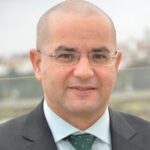 Ahmed Khalifa, Assistant Professor of Law, Ain Shams University, Cairo, Egypt
Ahmed Khalifa, Assistant Professor of Law, Ain Shams University, Cairo, Egypt
Ahmed is an Assistant Professor of Law at Ain Shams University in Cairo, Egypt. Since 2014, he has served as the Deputy Secretary General of the International Association of Penal Law and as a member of the Board of Directors of the Siracusa International Institute for Criminal Justice and Human Rights in Siracusa, Italy. Dr. Khalifa has been the Middle East Regional Coordinator for the University of Oxford Price Media Moot Court Competition since 2015. Dr. Khalifa is an expert consultant with the ICRC in the MENA region and serves as a consultant for several international organizations, including the United Nations Office on Drugs and Crime (UNODC) and the United Nations Children’s Fund (UNICEF). Previously, he was a full-time in-house legal consultant with the United Nations Interregional Crime and Justice Research Institute (UNICRI) in Torino, Italy. Dr. Khalifa obtained his PhD in International Criminal Law from Poitiers University in France after completing his LLM in International Human Rights Law from Temple University, USA. His research areas cover international criminal law, international humanitarian law, and international human rights law.
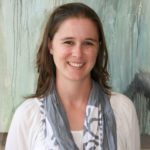 Caroline James, Advocacy Coordinator, AmaBhungane Centre for Investigative Journalism
Caroline James, Advocacy Coordinator, AmaBhungane Centre for Investigative Journalism
Caroline James is a South African freedom of expression lawyer. Since 2022 she has been the advocacy coordinator for the amaBhugane Center for Investigative Journalism. She completed her M.A. at Queen’s University in Canada has BA(Hons) and LLB degrees from the University of the Witwatersrand in Johannesburg, South Africa. Her research interests are in constitutional and human rights law – particularly the way in which power is held to account. Caroline previously worked as the freedom of expression lawyer at the Southern Africa Litigation Centre in Johannesburg where she worked with lawyers and organizations in southern Africa litigating and advocating for the right to freedom of expression and association. Caroline has also worked as a judge’s clerk at the South Gauteng High Court in Johannesburg.
Lautaro Furfaro, Legal Researcher, Columbia Global Freedom of Expression
Lautaro Furfaro is a legal researcher at Columbia Global Freedom of Expression. He is an international lawyer specializing in International Human Rights Law and International Law. He holds a Master of Laws in International Legal Studies from New York University Law School (2022), where he received the convocation award “Public Interest Law Prize” for demonstrating a clear commitment to public service and significant causes of public interest. He is a lawyer (J.D.) who graduated with honors from the University of Buenos Aires School of Law, specializing in International Law. Lautaro is currently an Adjunct Professor at the University of Buenos Aires School of Law, where he teaches International Human Rights Law. He is also co-Professor in the course Philosophical Foundations of Human Rights in the Master of International Human Rights Law at the University of Buenos Aires. Furthermore, he is an Assistant Professor of International Law in the foreign relations program at the Universidad Torcuato Di Tella.
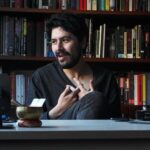 Juan Manuel Ospina, Editor and Legal Researcher, Columbia Global Freedom of Expression
Juan Manuel Ospina, Editor and Legal Researcher, Columbia Global Freedom of Expression
Ibrahim Sabra, Research associate, Department of Innovation and Digitalisation in Law, University of Vienna
Ibrahim Sabra, a Chevening Alumnus from Egypt, is a young scholar in AI governance, internet regulation, and digital rights. He is a dedicated advocate for responsible innovation that safeguards social justice and internet freedom, particularly within the Global South. He currently works as a research associate at the University of Vienna’s Department of Innovation and Digitalisation in Law, where he contributes to cutting-edge research, further solidifying his position as an aspiring expert in the dynamic field of technology law. Ibrahim has diverse experience with global and regional institutions, including Columbia University’s Global Freedom of Expression, the Berkman Klein Center, the Center for AI and Digital Policy, and Strathmore University’s Centre for IP and IT Law. Previously, he taught law at the British University in Egypt Faculty of Law, covering subjects such as human rights law, EU law, public international law, and legal research for undergraduates. Additionally, he taught cyberlaw and cybercrime to postgraduates. His active involvement in multiple initiatives focused on fostering mooting culture, clinical education, and practice-informed research in law schools stands out, notably his leadership in establishing the Moot Court Unit at the British University in Egypt’s Law Faculty.
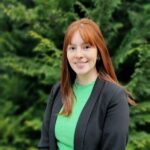 Estefanía Mullally, Program Coordinator, Columbia Global Freedom of Expression
Estefanía Mullally, Program Coordinator, Columbia Global Freedom of Expression
Estefanía is an Argentine lawyer, specializing in International Public Law at the University of Buenos Aires (UBA). Since September 2023, she has served as Program Coordinator at Columbia Global Freedom of Expression. She holds postgraduate specializations in Public Policy and Gender Justice (Latin American Council of Social Sciences – CLACSO) and Gender and Law (UBA). She is currently the Academic Coordinator of the Diploma in “Right to freedom of expression” co-organised by the Human Rights Center (Law School, UBA), the Regional Office for South America of the Inter-American Institute of Human Rights, and the Center for Studies on Freedom of Expression and Access to Information of the University of Palermo. She also serves as Academic Coordinator of “Semillero Latinoamericano de Derechos Humanos”, an academic program co-organised by the Human Rights Center (Law School, UBA), the Inter-American Court of Human Rights, and the Rule of Law Program for Latin America of the Konrad Adenauer Foundation.
 Alejandra Negrete Morayta, Prize Manager, Columbia Global Freedom of Expression
Alejandra Negrete Morayta, Prize Manager, Columbia Global Freedom of Expression
Alejandra Negrete Morayta is an attorney at law from National Autonomous University of Mexico. She holds an M.A. in Legal Argumentation from the University of Alicante, Spain. Throughout her career, Alejandra has worked in the fields of human rights, gender equality, due diligence, freedom of expression, as well as in the making of public policies pertaining to these issues. In Mexico, she served as National Commissioner to Prevent and Eradicate Violence Against Women and as Prosecutor for Labor Defense in Mexico. Also, she has served as adviser in human rights for the Presidency Office at the Mexican Supreme Court of Justice, and as a human rights specialist for the Office of the Special Rapporteur for Freedom of Expression at the Inter-American Commission on Human Rights, the Inter-American Court of Human Rights and the Inter-American Commission of Women.
Joan Barata, Senior Legal Fellow, Justitias Future Free Speech project
Joan Barata works on freedom of expression, media regulation, and intermediary liability issues. He is a Senior Fellow at Justitias Future Free Speech project. He is a Fellow of the Program on Platform Regulation at the Stanford Cyber Policy Center. He has published a large number of articles and books on these subjects, both in academic and popular press. His work has taken him in most regions of the world, and he is regularly involved in projects with international organizations such as UNESCO, the Council of Europe, the Organization of American States or the Organization for Security and Cooperation in Europe, where he was the principal advisor to the Representative on Media Freedom. Joan Barata also has experience as a regulator, as he held the position of Secretary General of the Audiovisual Council of Catalonia in Spain and was member of the Permanent Secretariat of the Mediterranean Network of Regulatory Authorities.
 Niklas Eder, Co-founder, User Rights Organisation
Niklas Eder, Co-founder, User Rights Organisation
Niklas Eder is the Co-Founder of User Rights and works as a Digital Policy Postdoctoral Researcher at the University of Oxford. He is teaching the course “Technology, Democracy and Society” at King’s College London. He previously worked at the Oversight Board and the Information Society Project at Yale Law School.
Jordi Calvet-Bademunt is a Research Fellow at The Future of Free Speech and a Visiting Scholar at Vanderbilt University. His research focuses on free speech in the digital space. Jordi has been a fellow at the Internet Society and holds a Master’s in public administration from Harvard University (Cambridge, Massachusetts), where he specialized in tech and AI policy. While at Harvard, Jordi supported the former chairman of the U.S. Federal Communications Commission, two former senior Department of Justice officials, and the former Chair of the MIT Economics Department with the organization of a year-long seminar series on tech policy. Jordi has almost a decade of experience as a policy analyst at the Organization for Economic Co-operation and Development and as an associate in leading European law firms. He holds a Master of Law from the College of Europe (Bruges, Belgium) and two Bachelor of Laws and Business Administration from Pompeu Fabra University (Barcelona, Spain).

